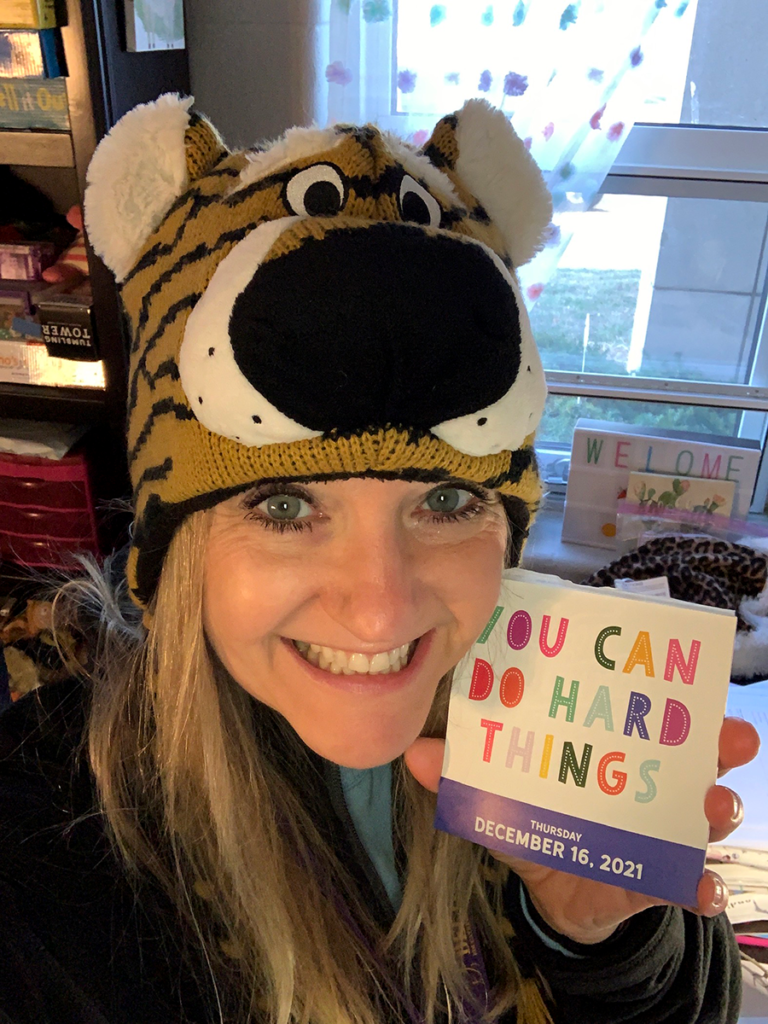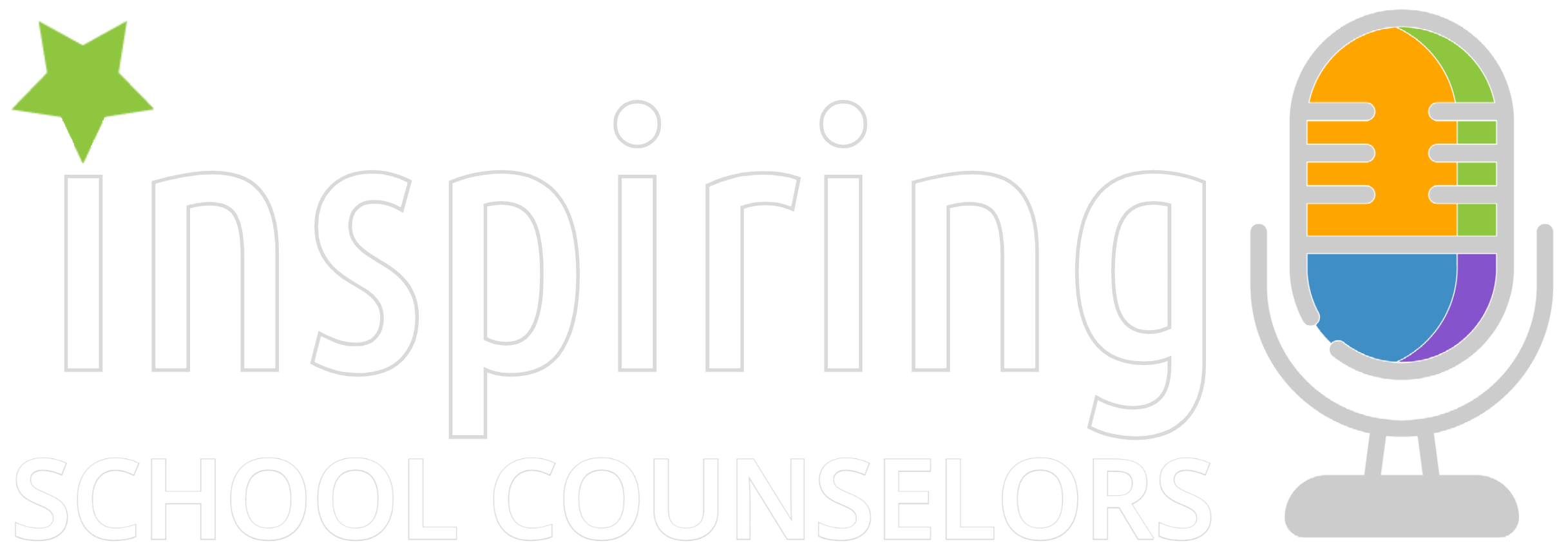Helping students become aware of when things are working right, or the way they want them to work, is a principle concept of brief counseling. This week’s guest Carey Hughes shares the perfect example of putting this principle into practice with students.

This Week's Storyteller
Carey taught Spanish in high school and junior high for several years before going back to school and getting her Masters in School Counseling degree. First she was a middle school counselor and recently moved into the elementary world.
Carey is currently the only school counselor in a building of over 400 students K-4 and says, “After so many years in the secondary world, I absolutely love where I have landed! I can wear costumes and silly hats (see the photo) and it only helps in my connections with students and staff in the building.”

Share YOUR Story!
 Do you have a touching or funny (or both) story about school counseling? We want to hear it! Drop us a line or record your story with our online Sound Booth.
Do you have a touching or funny (or both) story about school counseling? We want to hear it! Drop us a line or record your story with our online Sound Booth.
If you have questions or need help, let us know!
Subscribe
Encouraging Words for School Counselors is also available on these podcast apps and others. If you can’t find the podcast on your favorite app, let us know and we’ll make sure we get there. If you prefer to listen in your browser, visit https://inspiresuccess.org/podcast every week for a new episode. For new episode notifications and more, follow Inspire Success on Facebook, Instagram, or Twitter.
Transcript
Matt Fleck:
Hello, everyone! Welcome to another week of the Encouraging Words for School Counselors podcast, the short little podcast of stories from school counselors about their school counseling experiences. I’m Matt Fleck with Inspire Success.
Now, we didn’t plan it this way, but last week’s podcast from Sarah Kirk about the effectiveness of mindfulness techniques with students is the perfect introduction to this week’s podcast. Our guest this week used our online Sound Booth to record her story so we’re going to let her introduce herself.
Carey Hughes:
Hi, I’m Carey Hughes and I’m a school counselor in Missouri. I just have a little story to share about a young lady in my building.
Matt:
Carey contacted us to share her story of a female student whose mother was very concerned. The mother contacted Carey and said her daughter was having meltdowns at home, she was crying, not getting up in the morning, and simply refusing to go to school.
Carey:
Just a lot of things. And she was an older student in our building and had a leadership role. And you know, mom was doing pretty much everything possible to get her excited about coming to school and it just wasn’t working and they were struggling a lot. Although at school, you wouldn’t know it because this little girl just has a smile on her face all the time because she’s a people pleaser. And so she, she, you know, you asked her how her day was and she’d say, great and you didn’t really get much else. So when mom shared this with us – by us, I mean myself and my principal – we both were kind of sad hearted because this was one little girl we thought was doing really well.
Matt:
What would you do in this situation? It’s a good question. Of course, there are multiple ways to approach a student with these issues and like many of us, it’s often a process of trial and error.
Carey:
We implemented a few different things, nothing really difficult. One thing was I was going to check in with her at least once a week. The second thing was I was going to offer her a little lunch group where she could invite one or two friends and they could eat lunch in the quiet conference room one day a week so that’d be something she could look forward to. And my principal was the one who suggested doing a gratitude journal.
So I found a little memo book (like this one) that had a cute cover on it and gave her some stickers. And we talked about, you know, if she just wrote down three good things a day and she didn’t have to write a lot because she is one who struggles with academics. I didn’t want her to feel like this was something hard to do.
But I told her that she was just going to be a “positive detective” and look for good things in the day and just jot them down. And the notebook is small enough, she can just put it in her pocket and take it with her wherever she goes. And we told the teacher about it and the teacher makes sure that she has just like five minutes a day that she can jot things down.
So we put this into place and it was like a week or two later I asked her how she was doing. And she said, Mrs. Hughes, I’m doing so good. She said, it used to be, mom had to wake me up. Now I am setting my own alarm and waking up and I am excited to come to school. And her mom told us the same. She said, it’s like I have a different kid.
Matt:
The mother thanked both Carey and her principal for everything they were doing. And Carey says the really amazing thing is this…
Carey:
In reality, this didn’t take much time or effort on our part. It was just getting it started and helping our friend to find the positives. And it just goes to show that just a little bit of our time and our work can really bring about change in kids. And so that just warmed my heart and I wanted to share. Thank you!
Matt:
Not all of our interventions as counselors work this well – but when they do – it’s definitely worth sharing. Thanks Carey for your story and for using our online soundbooth to record it for us all to hear. You can also record a story of a success or challenge you have encountered – in the exact same way Carey did – by going to our online sound booth at inspiresuccess.org/soundbooth.
Thanks as always for listening and we hope to hear one of your stories soon. Bye bye.
